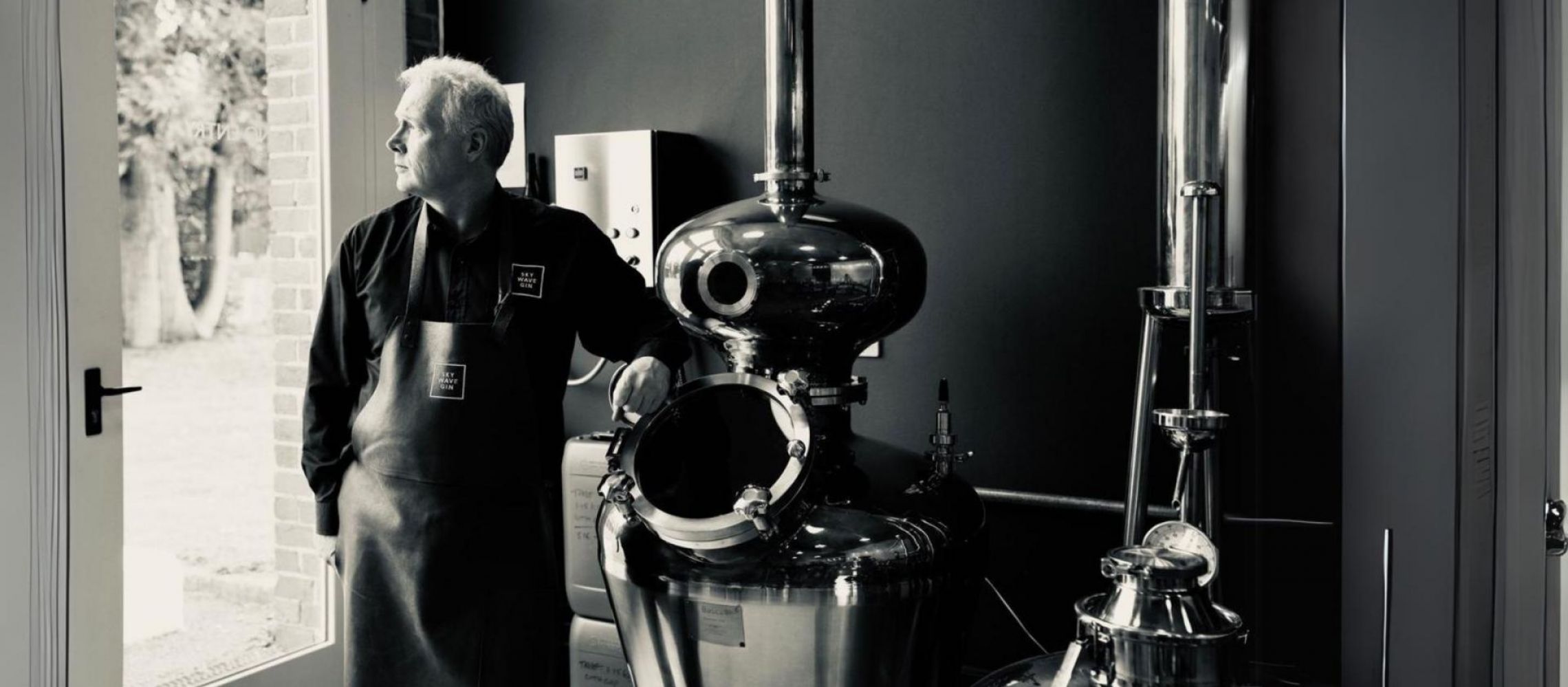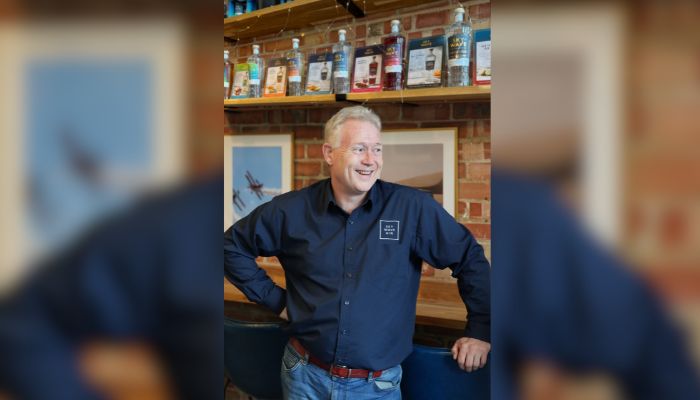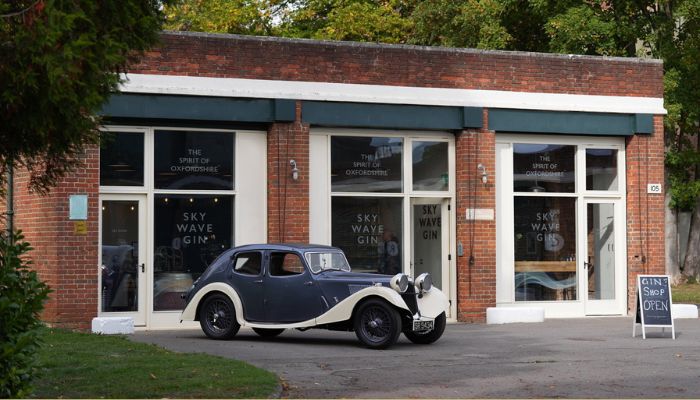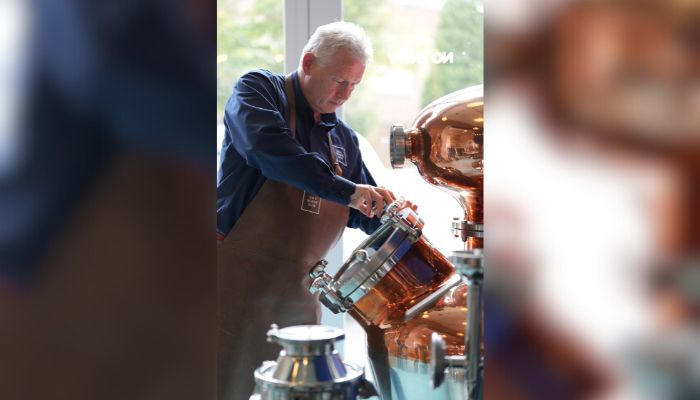Submission Deadline
28 February 2026
Judging
Date
24 & 25 March 2026
Winners Announcement
22 April 2026
28 February 2026
24 & 25 March 2026
22 April 2026

Every distiller has a unique narrative to tell. Andrew Parsons, a former Army officer turned Master Distiller at Sky Wave, discusses his surprising journey into the world of handmade gin. From military duty to telecom consultancy, a chance day at gin school altered the trajectory of his career, resulting in the invention of what he considers the perfect gin.
Andrew's days as Sky Wave's Master Distiller are anything but typical. Every day presents a new task, from preparing botanicals to supervising bottling runs. His enthusiasm for artisan gin is palpable as he outlines the technical skills required for distillation, highlighting the value of flavor, attention to precision, and a combination of science and engineering.
In this exclusive interview, Andrew discusses the personal touch that distillers bring to marketing and sales, the issues confronting the spirits business, and his vision for the future of domestic craft distilling.
It was purely accidental! I was a career Army Officer and then a telecoms consultant - but with a passion for craft gin. A gift of a day at gin school changed all that. The rest is history!
Master Distiller at Sky Wave. There is no typical day! On a distilling day, we try to prep the dry botanicals the day before. We then have an early start to prep the fresh botanicals and charge the still. The still runs for a long day and we try to cut that day if possible. A non-still day could involve supervising bottling runs, fighting our temperamental labelling machine or working on NPD for one of our bespoke clients. Every day is different.
The love of craft gin. We've always sought out local craft distilleries on our travels but had never found the 'perfect' gin for our tastes. That gift of the day at gin school I mentioned allowed us to dabble - but we hit gold. We believe we have now created that perfect gin - for us.

Image: Andrew Parsons
There are many. The ability to differentiate very many subtly different aromas and tastes is key - you are tasting and nosing constantly in the distillery. But an aptitude for science and engineering, and a very fine attention to detail are also key. And a love of spirits of course.
Especially in a craft distillery, the personal touch of the distiller is priceless. If you can engage with buyers personally it can make all the difference. Time spent with your sales team - for the right buyer - is as important as time in the distillery. But it's also important in crafting the key marketing messages. Spirits are very personal. They can be made more personal by the personal involvement of those who distil them.
I'd repeat my answer above - a special sense of taste and smell, attention to minute detail, and a sense of science and engineering.
The trial and error of NPD. For every successful distillation in NPD, there may be 10 failures.

Image: Sky Wave Gin
Taste, then let's talk about its provenance. These are some of the best, most versatile gins you have ever tried. Taste, then let's discuss how we make it, why it's so smooth and full of flavour, and how we might incorporate it into your creations.
In the UK - HMRC. The inconsistency of rules, regulations, and the law, coupled with duty increases and inequitable grants and support across the drinks-producing sector and the hospitality industry will kill some distilleries - and for some, it is already too late.
Having trained the next generation of distillers to make the spirits with the same level of love and care, I'd love to travel the world to find the best botanicals and form friendships and partnerships with the growers and farmers.
G&T remains a firm favorite, it's hard to beat. The perfect setting? Any sunset, but ideally overlooking the sea somewhere warm.
The Cocktail Bible, The Savoy Cocktail Book, and of course our very own Craft Distilling!

Image: Andrew Parsons
Firstly, quality, and whether can they deliver UK grain NGS. Then, responsiveness, flexibility in MoQs for a small distillery, and value for money.
Our range is some of the best gins in the world. Try them, then decide. Words cannot replace trying it - so if you want to give your guests a truly ultra-premium product, try them.
We have tried to build in sustainability right from the formation of the company. We use renewable energy throughout; we have (almost) zero single use packaging, all our shipping packaging is sustainable and recyclable. Even our blending water is not used by accident - we use water from 5 miles away to reduce road miles. We also still bottle and label on site - again to reduce road miles. Most importantly, unlike very many distilleries we rejected foreign manufacture of our brand new bottle and it is made here in the UK, contributing to UK industry and again reducing transport costs.
Various ways. We are only really just expanding in the UK, and London is as yet untried territory. But we are also expanding across the world, with export opportunities in Europe, Asia and South America. We're deliberately positioned in the ultra-premium category where growth remains healthy.
I'd like to see a consolidation of quality over quantity, and brands and styles succeeding because of their depth of quality and not because they are a new fad. I admire some of the bigger, older brand names in the industry who have (mostly) stuck to what they do best and continued to do it, often better. Beefeater 24 and Beefeater Crown Jewel are good examples.
[[relatedPurchasesItems-63]]
Show your spirits where it matters. Get your products tasted by top bartenders, buyers and experts at the London Competitions — enter now.